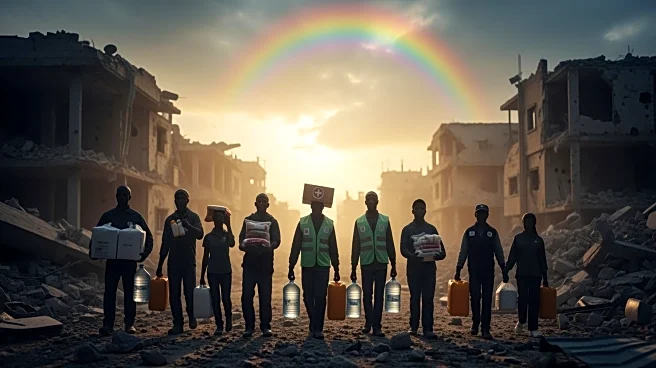What's Happening?
Humanitarian organizations are encountering significant logistical challenges in delivering aid to Gaza, despite a ceasefire between Israel and Hamas. Essential supplies such as food, clean water, medicine,
and hygiene products are running low, with hundreds of thousands of families displaced and living in crowded conditions. Israeli authorities have limited the amount of aid entering the strip, and destroyed infrastructure complicates access to affected areas. The approaching winter season adds urgency to the need for provisions to help Palestinians endure the cold weather months.
Why It's Important?
The situation in Gaza underscores the complexities of humanitarian aid delivery in conflict zones, where political and logistical barriers can severely impact relief efforts. The restrictions on aid not only affect immediate survival needs but also hinder long-term recovery and rebuilding efforts. The international community's response to these challenges will be crucial in determining the effectiveness of aid operations and the well-being of the affected population.
What's Next?
Humanitarian organizations are likely to continue advocating for increased access and reduced restrictions on aid delivery to Gaza. Efforts may focus on negotiating with Israeli authorities to open border crossings and allow more supplies to enter the strip. The rebuilding of critical infrastructure, such as water and sanitation systems, will be essential in improving living conditions and preventing disease outbreaks.
Beyond the Headlines
The challenges faced in Gaza highlight broader issues of international humanitarian law and the ethical responsibilities of nations in conflict situations. The need for effective coordination and cooperation among humanitarian agencies, governments, and local stakeholders is crucial in addressing the complex needs of displaced populations and ensuring their rights are upheld.









